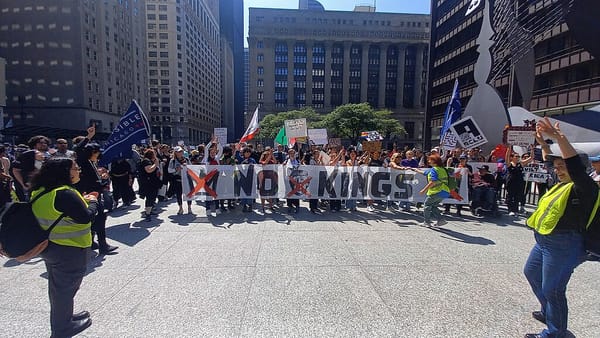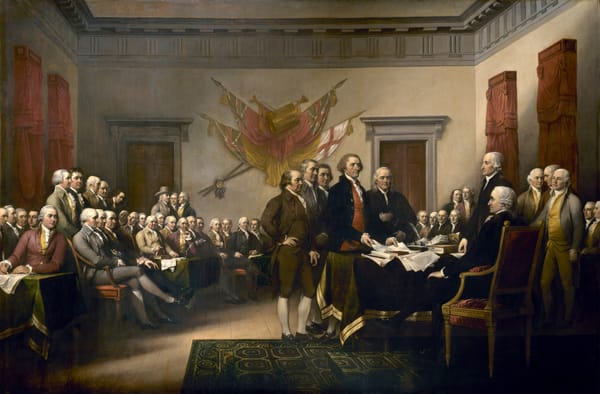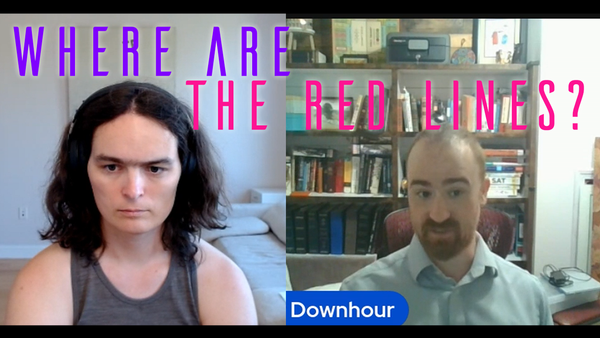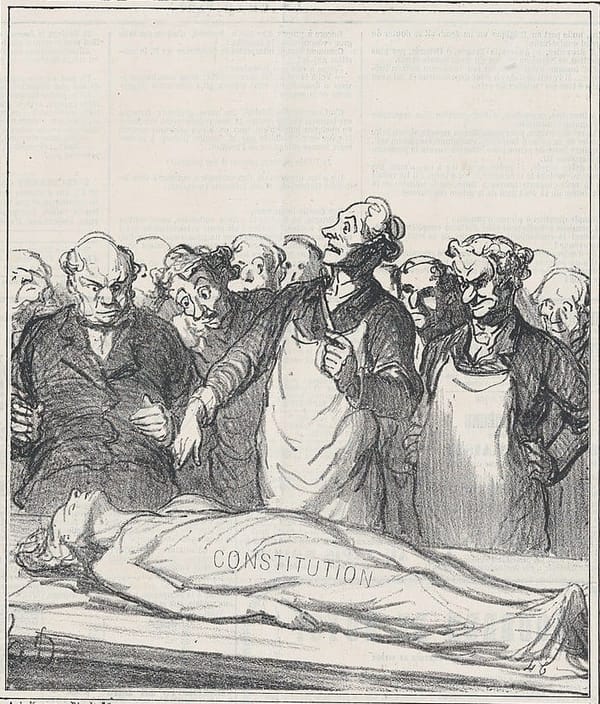Freedom and the Common Good: Mike Konczal's Freedom From the Market
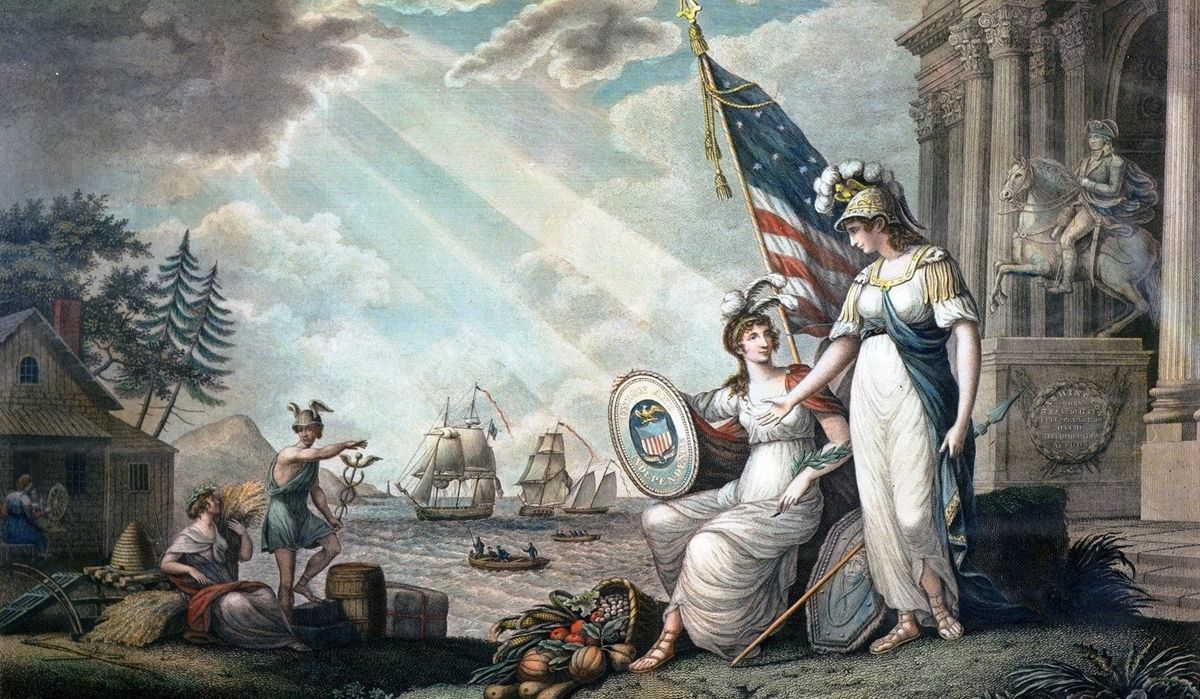
The average person, but especially conservatives, would likely tell the story of American progress, how we became so affluent, healthy, and well-educated, as filtered through the lens of capitalism and freedom—the gradual unleashing of the power and efficiency of the market. The free market, in this telling, is just a gravy train of goods and services delivered to the right people in the right places and (mostly) on time. Government, conversely, represents the heavy hand, the taker, the suppressor of progress and innovation; it just gets in the way. It’s the bumbling but arrogant idiot, sapping resources and money from places where it could be better spent. The free market is the avatar of genuine freedom whose only code is that people should be allowed to do what they want and enjoy or suffer the consequences that follow.
But it wasn’t always this way. The classical republicans believed that economics should be subordinated to political concerns. They also subordinated the individual to concerns about the common good. Both of these subordinations were viewed as essential to the preservation of freedom. As political scientist Eric MacGilvray argues, with the rise of commercial culture a kind of synthesis started to emerge in the 18th century from the “weaving together of two distinct theories of freedom … into a new and predominantly market-centered view.”[1] On this view,
the proper aim of government is not… simply to enact the will of a virtuous citizenry as filtered through a properly designed set of political institutions, or… simply to protect the natural rights of its citizens. Rather, the aim is to ensure the smooth functioning of commerce by allowing individuals to dispose of their property—including the property that they have in their labor—as they see fit, thereby advancing the security and prosperity of the polity as a whole.[2]
In Freedom from the Market, Mike Konczal resurrects the history of freedom not, as MacGilvray does, from the perspective of political theorists, but from the perspective of activists and reformers. He tells a story about freedom that has been all but totally lost in the memories of most Americans, and one that pushes hard against the free market fundamentalism gripping the nation since at least the last quarter of the 20th century. This fundamentalism has not only provided a sketchy and precarious roadmap for the future—in which the only task of government is to get out of the way of the market—but, and this is the point of Konczal’s book, this fundamentalism also casts a long shadow backward: It has rewritten our history in a way that blinds us to the many ways in which people fought against the market in order to preserve what they saw as freedom, putting a lie to the conservative’s claim that the history of American freedom is one and the same with the history of capitalism. Freedom from the Market resurrects the stories of people and movements who saw the market not as liberating or as the ultimate source of freedom but as stifling, and who sought to release themselves from, as the subtitle of the book reads, the “grip of the invisible hand.”
Konczal traces the “history of people fighting against market dependency” from the mid-19th century fights over the Homestead Act, through the age of the robber barons when reformers sought to limit working hours and improve working conditions, through the New Deal’s focus on social security, and ends with the not-yet-finished movement to secure healthcare and education for all.
The history of the United States is, in some senses, the history of the word freedom itself. In all of these struggles, Konczal writes, the language used by reformers was almost always “framed in terms of freedom.” Contrary to those who see in the word a stable meaning across all times and places—or simply equate it with market freedom, as many do today—the word has been put to all manner of uses, more often than not disparate and conflicting uses. As Daniel Rogers puts the point:
Freedom was an open abstraction: its ambiguities and its power inextricable from one another. A word which rose on the crest of its historic moment, wrenched from purpose to purpose, fillable and refillable with meaning, tugged at by ever more sets of hands, it reiterated in its career the central dynamics of our political talk. Ask not what Freedom is, for if it worth much it is never static. Ask what the word is being used to do.[3]
For example, “one of the central questions of American politics from 1803 through the Civil War” was what to do with all the newly acquired—often stolen, but also ceded from the states—land that came under the purview of the government. As Konczal points out, the government was deeply in debt, so “[s]elling all this land for profit was the obvious choice.” But while this may have been the obvious choice, it wasn’t without its opponents. There was “pushback against treating land like any other thing for sale.”
Land was a source of wealth, yet nobody created it. Inequality in this wealth would cause problems on both ends of the distribution. Those too poor to access land they could own would be subject to the whims and domination of landowners. Meanwhile the rents and profits of landowners could be invested in more land, creating large concentrations of land and power among the already wealthy. These landowners could use their wealth to turn politics to their own ends, as the South would do as it fought to expand slavery west into the public lands.
As many revolutionary-era leaders knew—like Jefferson and Paine—“land was one of the major sources of capital and wealth in the early United States, and access to land structured not just families but society itself.” If left unchecked—that is, if left to speculators or only those who could afford it—we would very quickly end up with massive inequalities that would reverberate through the centuries. The point, in other words, is that the government selling the land—putting it on the free market, so to speak—would likely be a one-way ticket to oligarchy and inequality. And for those caught on the raw end of that deal—most Americans, that is—it would be a serious source of unfreedom.
This debate about how free land formed the foundation for a free society extended through the work so many thinkers, from Jefferson’s early championing of yeoman farmers and Paine’s social obligations, to the labor infused radicalism of Skidmore’s political party and the mobilization of the National Reform Association. Each had their own focus. Yet there was a core set of arguments about freedom and land that appeared over and over again, no matter the context. All the homestead advocates were adamant that they weren’t promoting a form of charity. They advocated for homesteading as a means of creating a more equal citizenship, rather than a way of simply compensating the losers of society.
Although the characters and issues changed over the years—and throughout the book—the fundamental story remains the same: freedom means more than just prostration before unrestricted markets. Oliver Wendell Holmes Jr.’s dissent in favor of a state’s right to limit working hours in Lochner; I.M. Rubinow’s early-20th century work on the benefits and necessity of having some kind of broad social insurance (e.g. Social Security); Frances Perkins and the New Deal restructuring of the economy and labor; post-WWII activists—mostly women—fighting for continued universal publicly-funded childcare; John Holloman’s successful campaign to end segregated hospitals by threatening to withhold Medicare funding—all of these movements were about getting more time, more money, more security, more health, for the average American. What else could freedom mean?
The modern answer to that question, which is then cast over all of history, is freedom means freedom from restraint. As Konczal points out, Isaiah Berlin’s conceptions of negative and positive liberty—and his preference for the former—gave an intellectual foundation to the view that negative liberty was the true form of liberty. But this was attractive mostly due to its apparent simplicity. Everyone knows what freedom from restraint looks like, especially arbitrary and capricious restraint; no one has the slightest clue—and just can’t seem to agree about—what constitutes the necessary goods required to live a flourishing life, try as they might. Positive liberty is a muddy, confusing concept that always seems to be dipping its toes into the waters of state power and coercion too.
From here, it’s just a small step to say that since true freedom is the absence of restraint on choice, that the free market—if left to do its thing, of course—is the ultimate expression of negative liberty. For the neoliberal and libertarians who imbibed this way of thinking, “negative freedom was not just an important goal of the government, it was the only legitimate one. Any kind of economic interference, be it regulations, taxes, public programs, or social insurance, would necessarily also undermine the idea of freedom.”
Yet still, “people have used markets for trading and exchange for centuries,” Konczal writes. “What is unique today,” he says “is how the economy has been restructured to extend and accelerate our reliance on markets into all aspects of society.” According to him, “what is dysfunctional about our current economy and politics comes from extreme market dependency.” So it’s not that markets are inherently bad—far from it—it’s that market fundamentalism is bad in that, like most fundamentalisms, it claims to be the answer to all our worldly, and sometimes even spiritual, ills.
Konczal maps out five broad arguments made against market dependency, all of which manifest in the historical examples he traces throughout the book.
The first argument is that “the distribution of goods in a market economy doesn’t match what we need to live free lives.” This is the classic argument that things like health and education are foundational for us to live free lives, and so shouldn’t be distributed solely by who can pay for them. The idea that necessary goods should go to everyone regardless of their ability to pay often hides deeper complexities, but navigating those complexities is part of the political game, and something effective activists and politicians don’t shy away from.
The second argument is that “the market is an unreliable provider” of essential goods. Konczal claims that it’s simply not enough to subsidize private business to provide things that are essential to our freedom since doing so can easily end up with those businesses “capturing those resources rather than providing what is needed” or not providing the good in an equal manner. He uses the example of insurance companies who discriminate against those who need insurance most. Although the history of public goods has often been discriminatory in this very same way, the fact that it is a pure public good at least gives citizens recourse to adjudication, unlike the complicated thicket of publicly-subsidized private goods coupled with the unreflective assumption many people have that private businesses should be allowed to do what they want. This unreliability of the market also extends to recessions and downturns. “An important reason people have demanded protections from the marketplace is to offset the devastation caused by the business cycle, pain no individual causes themselves or can prevent on their own.”
A third argument Konczal lays out is essentially republican in nature: “freedom requires being free from arbitrary power and domination by the will of others.” The classical republicans, though far from a uniform group, believed that “if others can interfere with your life in a wanton and capricious manner, you are not free.” Unsurprisingly, Konczal uses the labor contract as an example here. Most libertarians, he says, view the labor contract as workers simply selling their labor and bosses buying it—it’s an equal partnership because the worker, so the story goes, can always leave and take their labor somewhere else and sell it to another boss.
In the real world—especially one in which health insurance is tied to employment—workers don’t have this ability to just pack up and leave to find work elsewhere with better pay or better conditions. “Bosses will always have an advantage because, under market dependency, workers need to work in order to survive, in order to have the resources to continue living.” Konczal rightly points that this depressing state of affairs is often “characterized by instances where one side can take advantage of asymmetric knowledge, agency, power, or the vulnerabilities of a participant.” In other words, workers need bosses more than the other way around, and, worse, they know it. This doesn’t just apply to the labor contract though; Brink Lindsey, Steve Teles, and Sam Hammond have all extensively documented the shadowy ways in which elites and the rich capture more than their fair share of rents in a number of ways in the financial sector, through excessive licensing schemes, land use and restrictive zoning, intellectual property laws, and health care.[4] Although these issues rarely reach the level of fever pitch among the general electorate—and this isn’t surprising; they are all complex issues—they are some of the purest forms of the exercise of arbitrary and self-seeking power we have.
The fourth argument is that “the expansion of markets to all of society turns all things into commodities, and leaves no rewards for things that don’t function as commodities.” While this kind of sentiment does have some truth to it—and the characters in Konczal’s book certainly believed it to some degree or another—this thought tends to get overplayed at the political table, and often comes out as somber Rousseauian soliloquies about how dreary modern commercial life is. Oscar Wilde’s line that “The cynic knows the price of everything and the value of nothing” is good insofar as it refers to what the reformers and activists in Konczal’s book were actually talking about with respect to commodification—labor, money, and land—but garners little more than a shrug when simply gesturing at the economy as a whole or the materialistic nature of modern man.
“The last reason people have given for why freedom requires the suppression of the market,” Konczal writes, “is that, contrary to the idea of negative freedom, the marketplace is a political project, a form of government that projects state power.” Here Konczal reminds—or informs—readers that the free market isn’t some naturally occurring thing that we find in nature, but an economic order that is supported and structured by governing institutions. As proof, all one really needs to look at is the correlation between the world’s most successful (by its own metrics, of course) market economies and the size of their governments. An economy structured around a free market needs a particular set of laws, a certain set of ideas about private property, and a legal and institutional framework that consciously supports it in order to function. It is absolutely not self-sustaining and far from natural. As Joseph Heath writes: “Two boys trading marbles in the schoolyard may constitute a spontaneous order, but the capitalist economic system is a highly artificial construct, based upon an elaborate set of social programs that have been refined and tweaked over the course of centuries.”[5]
For Konczal, the fact that free markets aren’t natural occurring things means that “the idea of negative freedom doesn’t carry any weight.” He goes on:
Just as we debate whether or not the actions of the government will help or hinder freedom, the execution of the marketplace by the government needs to be democratically debated as well. There is no neutral way to have a market, and all choices matter, especially when it comes to how free we are. This was understood before the late 1800s, where the line between the economy and government wasn’t drawn as sharply through law. The idea of economic freedom as an absolute right to contract had to be invented.
It might seem like Konczal’s book advocates for something like socialism. But he admits that the suppressing of markets and the provision of essential goods sometimes “can be done with regulations and mandates, while other times it must be through the public directly providing the good itself.” Contrary to some of the themes of Konczal’s book, I actually see in the history and arguments he presents arguments about efficiency—arguments about how best to approach the distribution of each good, the best way to get everyone some particular good. Sometimes, as in the case of health care reform, it seems that mandates and regulations are little more than lipstick on a pig; other times, as in the case of Wall Street reform it seems like that mandates and reform are pretty much the only option on the table. And in other cases, like copyright or licensing, it does seem like the answer is for the government to do less or clear the space up for an actually free market.
This incrementalist reading of Konczal’s arguments might sound like nails on a chalkboard to many, but none of the reformers and activists he writes about spent most of their time saying, “This can’t be reformed” as they gestured hopelessly at the problems millions of Americans faced. Idealism in the face of staunch resistance and a dizzying array of conflicting ideas often, but not always, comes out as tiny, but meaningful pushes in the right direction—and that’s not a bad thing. Nor is this hard-won progress something we should disparage for its inability to change The System.
Republicans and so-called conservatives convinced more than a generation that freedom meant little more than market freedom. As Eric MacGilvray puts it: “defenders of ‘market solutions’ to pressing social and political problems have succeeded in monopolizing the language of freedom.”[6] In one of his last books he wrote, the late historian Tony Judt wrote that “If it is to be taken seriously again, the Left must find its voice.”[7] The voice Judt is referring to is the social democratic language of freedom undaunted by the monopolization of it by those on the right. Those on the left need to unapologetically and confidently frame their agenda as their intellectual ancestors once did when they referred to “freedom as economic security, freedom as active participation in democratic life, freedom as social justice for those long disadvantaged.”[8] As Konczal writes:
liberals and the left have lost a language of freedom that would help us describe this predicament, conceding the terrain to conservatives and those who see freedom only in the marketplace. But people are now becoming hungry for a new idea of freedom, one that is rooted in public programs that genuinely serve people and checking market dependency.
What’s more, it’s clear that broad social insurance schemes—protecting people from the creative destruction of markets and the vagaries of life—is one of the best things you can do not only for people but for free markets themselves. People, unsurprisingly, are much less likely to advocate for socialism, communism, or alternate frameworks when they feel as though the current setup is reasonably taking care of them. Free market fundamentalist’s rhetoric of winners and losers is the worst thing possible for their cause.
Konczal’s book is as inspirational as it is exhausting: the fights for what we now see as basic rights—the 40-hour work week, relatively safe working conditions, the end of child labor, public education, and an overall increase in our standard of living—were, at the time, grueling battles that were anything but inevitable. If the moral arc of the universe bends toward justice or progress, it’s due to the people who read the universe as a call to action rather than an invitation to complacency. Freedom from the Market is a much-needed reminder that the luxuries we have today were hard won, and that there’s still plenty of work to do.
* All quotations are from Mike Konczal’s Freedom from the Market unless otherwise stated
[1] Eric MacGilvray, The Invention of Market Freedom
[2] Eric MacGilvray, The Invention of Market Freedom
[3] Daniel Rogers, Contested Truths
[4] Brink Lindsey and Steven M. Teles, The Captured Economy; Brink Lindsey & Samuel Hammond, Faster Growth, Fairer Growth
[5] Joseph Heath, Economics without Illusions
[6] Eric MacGilvray, The Invention of Market Freedom
[7] Tony Judt, Ill Fares the Land
[8] Eric Foner, Give Me Liberty: An American History
Featured Image is America guided by wisdom: An allegorical representation of the United States depicting their independence and prosperity, by John J. Barralett

